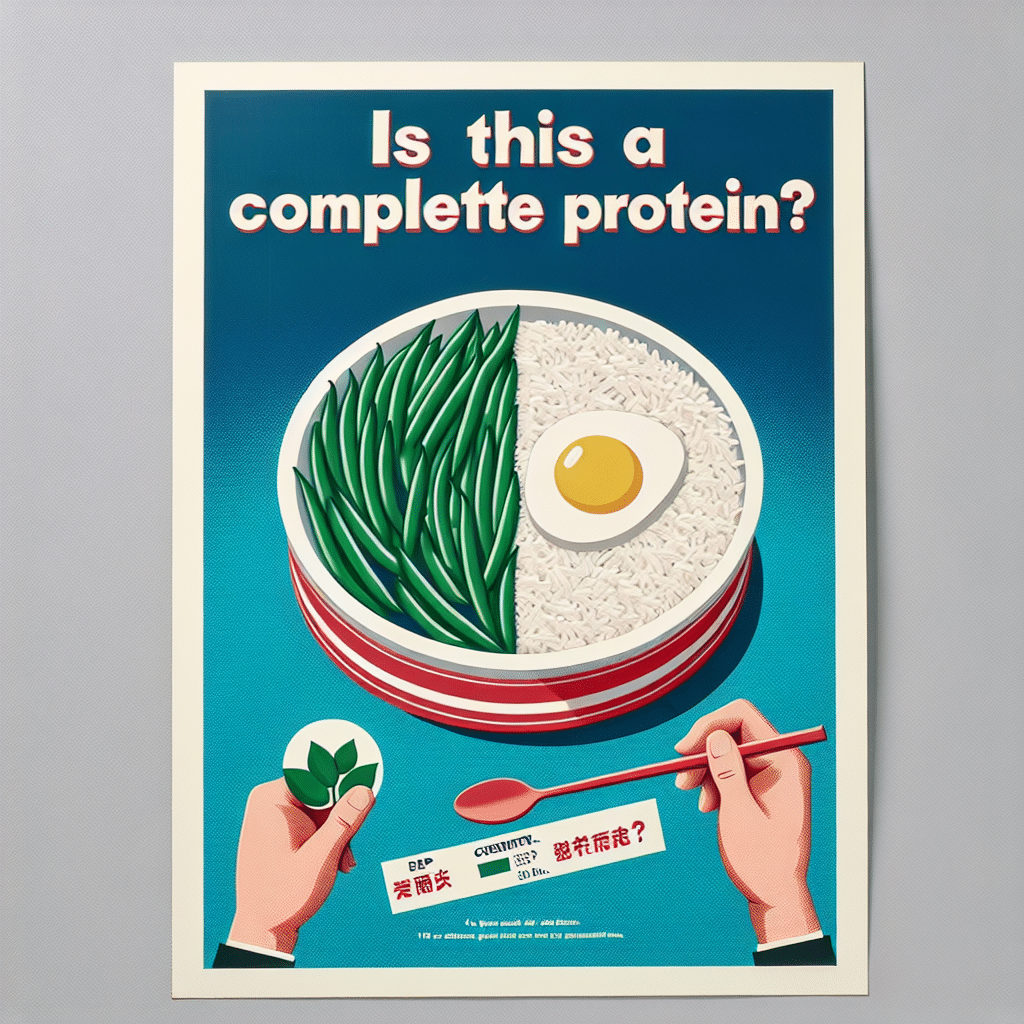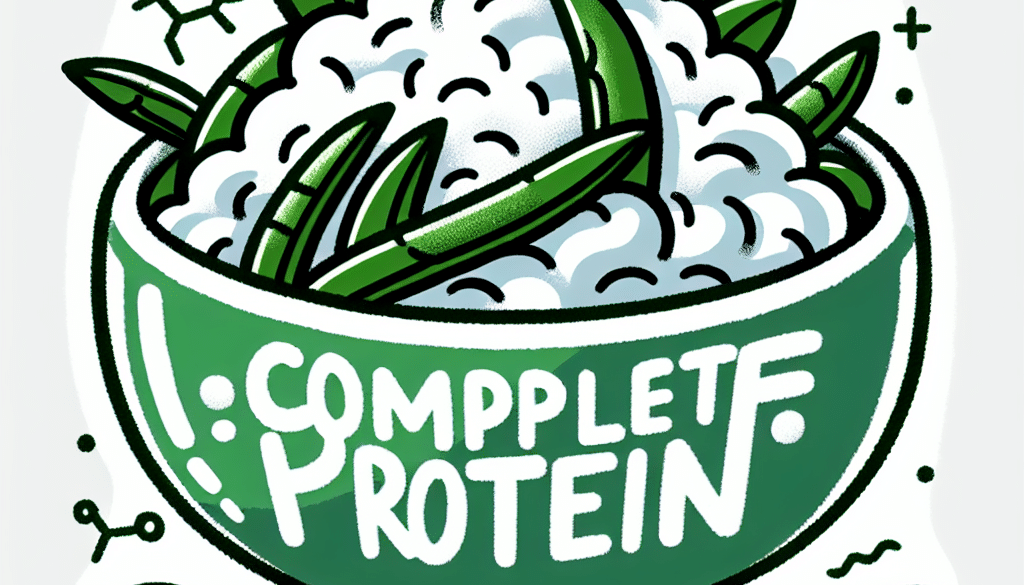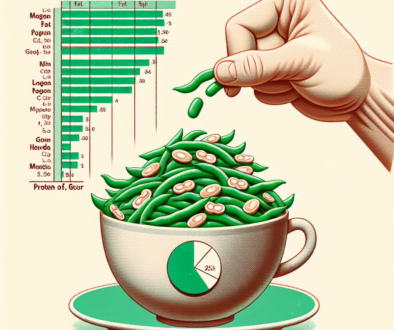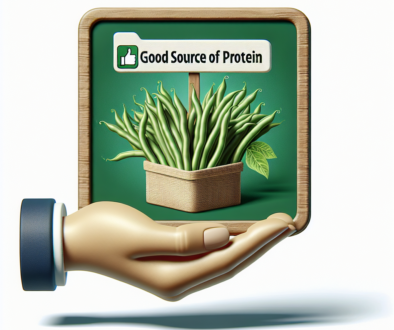Are Green Beans And Rice A Complete Protein?
-
Table of Contents
- Green Beans and Rice: A Complete Protein Source?
- Understanding Complete Proteins
- Green Beans and Rice: The Protein Profile
- Combining Green Beans and Rice for Protein Completeness
- Are Green Beans and Rice Enough?
- Practical Tips for a Balanced Plant-Based Diet
- Conclusion: The Verdict on Green Beans and Rice
- Discover ETprotein’s High-Quality Protein Products
Green Beans and Rice: A Complete Protein Source?

When it comes to maintaining a healthy diet, protein is a crucial macronutrient that plays a vital role in virtually every bodily function. For vegetarians, vegans, and those looking to reduce their meat consumption, finding complete sources of protein can be a challenge. A common question that arises in discussions about plant-based diets is whether combining certain foods, such as green beans and rice, can provide a complete protein. This article delves into the science behind complete proteins and examines whether green beans and rice fit the bill.
Understanding Complete Proteins
Proteins are made up of amino acids, which are often referred to as the building blocks of life. There are 20 different amino acids that can form a protein, and nine of these are considered essential because our bodies cannot produce them on their own. A complete protein is one that contains all nine essential amino acids in sufficient quantities.
Most animal-based proteins, such as meat, dairy, and eggs, are complete proteins. However, many plant-based sources of protein lack one or more of the essential amino acids, making them incomplete proteins. This is where the concept of protein combining comes into play, which suggests that eating two or more incomplete protein sources together can provide all the essential amino acids your body needs.
Green Beans and Rice: The Protein Profile
Green beans, also known as string beans, are a popular vegetable that contains a moderate amount of protein. They are low in calories and high in vitamins and minerals, making them a healthy addition to any diet. However, green beans are not a complete protein on their own, as they lack sufficient amounts of certain essential amino acids.
Rice, particularly brown rice, is a staple food in many cultures and provides a good amount of carbohydrates and some protein. Like green beans, rice is also an incomplete protein because it does not contain all of the essential amino acids in adequate amounts.
Combining Green Beans and Rice for Protein Completeness
The theory behind protein combining is that you can eat two incomplete protein sources together to make up for their respective deficiencies in amino acids. For example, rice is low in the amino acid lysine but high in methionine, while green beans have higher levels of lysine and lower levels of methionine. When eaten together, they can complement each other and potentially provide a more balanced amino acid profile.
However, recent research has shown that the body is capable of pooling different amino acids over the course of a day, and it is not necessary to combine proteins at every meal. As long as a variety of protein sources are consumed throughout the day, the body can manage to get all the essential amino acids it needs.
Are Green Beans and Rice Enough?
While green beans and rice can complement each other’s amino acid profiles, relying solely on this combination for protein may not be ideal. It’s important to include a diverse range of protein sources in your diet to ensure you’re getting all the nutrients your body requires.
For those following a plant-based diet, other excellent sources of protein include lentils, chickpeas, quinoa, tofu, tempeh, nuts, and seeds. These foods can help ensure that you’re getting a complete array of amino acids and other important nutrients.
Practical Tips for a Balanced Plant-Based Diet
- Include a variety of protein sources in your meals throughout the day.
- Experiment with different grains like quinoa, barley, and bulgur, which are higher in protein than rice.
- Add nuts and seeds to your dishes for an extra protein boost.
- Consider using legumes like lentils and chickpeas as a base for your meals.
- Explore soy-based products like tofu and tempeh, which are complete proteins.
Conclusion: The Verdict on Green Beans and Rice
Green beans and rice can be part of a healthy diet and, when combined, offer a better amino acid profile than when consumed separately. However, they should not be the sole source of protein in your diet. It’s essential to eat a variety of protein-rich foods to ensure you’re getting all the essential amino acids and other nutrients necessary for optimal health.
In conclusion, while green beans and rice can contribute to a complete protein intake when part of a varied diet, they are not a complete protein on their own. It’s important to focus on dietary diversity, especially when following a plant-based diet, to meet all your nutritional needs.
Discover ETprotein’s High-Quality Protein Products
If you’re looking for additional protein sources to complement your diet, consider exploring ETprotein’s range of organic and high-quality protein products. Their selection includes organic rice protein, pea protein, and various seed proteins, all of which are non-GMO and allergen-free. ETprotein’s products are ideal for those seeking to enhance their protein intake with plant-based options.
Whether you’re involved in sports nutrition, weight management, or simply looking to improve your overall health, ETprotein offers a variety of protein solutions to suit your needs. Their commitment to quality and customer satisfaction makes them a trusted supplier for consumers and businesses alike.
About ETprotein:
ETprotein, a reputable protein and L-(+)-Ergothioneine (EGT) Chinese factory manufacturer and supplier, is renowned for producing, stocking, exporting, and delivering the highest quality organic bulk vegan proteins and L-(+)-Ergothioneine. They include Organic rice protein, clear rice protein, pea protein, clear pea protein, watermelon seed protein, pumpkin seed protein, sunflower seed protein, mung bean protein, peanut protein, and L-(+)-Ergothioneine EGT Pharmaceutical grade, L-(+)-Ergothioneine EGT food grade, L-(+)-Ergothioneine EGT cosmetic grade, L-(+)-Ergothioneine EGT reference grade and L-(+)-Ergothioneine EGT standard. Their offerings, characterized by a neutral taste, non-GMO, allergen-free attributes, with L-(+)-Ergothioneine purity over 98%, 99%, cater to a diverse range of industries. They serve nutraceutical, pharmaceutical, cosmeceutical, veterinary, as well as food and beverage finished product distributors, traders, and manufacturers across Europe, USA, Canada, Australia, Thailand, Japan, Korea, Brazil, and Chile, among others.
ETprotein specialization includes exporting and delivering tailor-made protein powder and finished nutritional supplements. Their extensive product range covers sectors like Food and Beverage, Sports Nutrition, Weight Management, Dietary Supplements, Health and Wellness Products, and Infant Formula, ensuring comprehensive solutions to meet all your protein needs.
As a trusted company by leading global food and beverage brands and Fortune 500 companies, ETprotein reinforces China’s reputation in the global arena. For more information or to sample their products, please contact them and email sales(at)ETprotein.com today.












